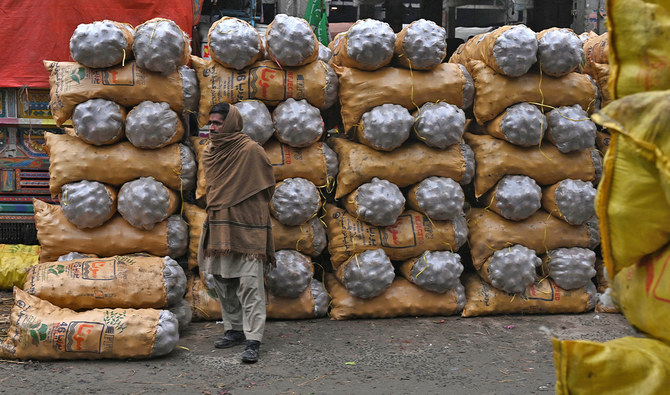ISLAMABAD: A global rights organization has called for the protection of economically disadvantaged people in Pakistan by broadening social protection systems in the country as officials in Islamabad discuss structural reforms with an International Monetary Fund (IMF) delegation to unlock a stalled bailout program amid a severe dollar liquidity crunch.
The negotiations between the two sides began on February 1 and are expected to conclude during the ongoing week. A successful outcome of the talks will help the government secure $1.1 billion from the international lender under a loan agreement signed in 2019.
The financial assistance from the IMF is likely to ease the crippling shortage of foreign exchange in Pakistan and make other sources of funding accessible to the country. However, the economic reforms currently under discussion are likely to put significant burden on low-income segments, making the government concerned about a likely political backlash in an election year while forcing rights organizations to ring alarm bells.
“Millions of Pakistanis have been pushed into poverty and denied their fundamental social and economic rights,” said Patricia Gossman, associate Asia director at Human Rights Watch (HRW). “The IMF and the Pakistani government have a responsibility to address this crisis in a way that prioritizes and protects low-income people.”
In a statement issued earlier this week, HRW noted the IMF was asking Pakistan to remove energy and fuel subsidies, move to a market-based exchange rate and increase its general sales tax rate. It maintained this was likely to make it harder for many people to meet their basic needs amid the rapid depreciation of local currency and soaring inflation.
“The IMF program should conduct a thorough assessment of the direct and indirect impact these adjustments would have on low-income people and adequately mitigate them,” it added. “New tax measures should be progressive in nature and should not exacerbate inequality and increase the cost of living in ways that undermine rights.”
HRW said the IMF recommendations should encourage government spending on social services, such as education, health care, and poverty-reduction programs while shoring up government revenues by improving the tax collection infrastructure and adopting stringent and transparent accountability measures.
It asked the international lender to make needed funds available as soon as possible, putting into place safeguards to protect people’s economic and social rights while pointing out they were still reeling from the devastating floods last year.
“Pakistan’s government should use the influx of funds to expand support for those worst affected by the economic crisis,” Gossman said. “The IMF should provide Pakistan the time and flexibility to achieve a sustainable, inclusive, and rights-based recovery.”













